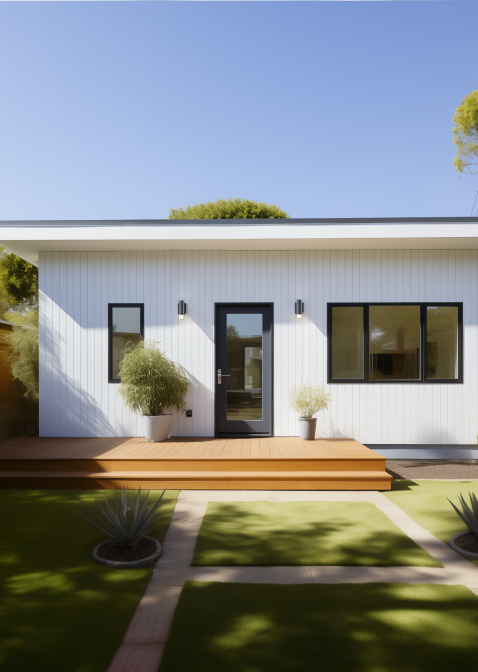A loud environment is one of the main headaches for a huge number of homeowners. This is especially true for large cities, where the noise of cars, the sounds of advertising from a cafe on the ground floor, or the night crying of a child behind the wall does not allow you to fall asleep and recover before a new working day.
In private houses located in the suburbs, there is also such a problem. Although there is less noise in these areas, a sudden alarm sound of a car or fireworks from neighbors can wake up at any moment, scare your children and pets, and also increase the level of anxiety, which negatively affects mental health. All this leads to the need to install soundproofing.
In this review, we will tell you about the main tips for installing sound insulation if you are planning to build a new ADU, and also reveal the algorithm of actions which will help simplify the process of installing a noise reduction system.
Installing sound insulation is a very responsible step that requires a thorough analysis of each component so that the system harmoniously fits into the atmosphere of your living space.
The first step in creating a soundproof ADU is to start with the right design. This includes choosing the right materials, designing the layout with soundproofing in mind, and minimizing the number of shared walls between the primary residence and the ADU.
When selecting materials, it is important to choose those that are constructed specifically for soundproofing. Some materials, such as mass-loaded vinyl or acoustic insulation, are specifically designed to reduce noise transmission through walls and floors.
In terms of layout, it is important to ensure that the ADU is not directly adjacent to any noisy areas of the primary residence, such as a home office or a garage. Additionally, it is a good idea to avoid sharing walls wherever possible, as this will help to minimize noise transmission between the two spaces.
The type of flooring you choose for your ADU can have a significant impact on sound transmission. Hard flooring materials, such as hardwood or tile, can be loud and transmit noise easily. Carpeting, on the other hand, can help to absorb sound and reduce noise transmission.
If you prefer hard flooring in your ADU, you may want to consider adding an underlayment specifically designed for soundproofing. This will help to reduce the amount of noise that is transmitted through the floor and into the primary residence.
The walls of your ADU are one of the most important areas to focus on when it comes to soundproofing. There are several techniques you can use to soundproof your walls. Firstly,
use double-layered drywall. Installing two layers of drywall with a layer of acoustic insulation in between can significantly reduce noise transmission through walls.
Secondly, pay attention to green glue. This is a special adhesive that can be used between layers of drywall to dampen sound and reduce noise transmission Finally, use acoustic panels as installing acoustic panels on your walls can help to absorb sound and reduce echoes, which can make a big difference in the overall soundproofing of your ADU.
Gaps and cracks in your walls, floors, and ceilings can allow sound to travel through your ADU and into the primary residence. To prevent this, it is important to focus on sealing any gaps or cracks that may exist. This can be done using a variety of materials, such as acoustic caulking or weatherstripping. Additionally, it is important to ensure that doors and windows are properly sealed to prevent sound from escaping.
Finally, it is important to consider the appliances you choose for your ADU. Some appliances, such as air conditioners or refrigerators, can be loud and disruptive. Choosing appliances that are specifically designed to reduce noise can help to create a more comfortable and peaceful living space for ADU tenants.
For example, many quiet air conditioning units on the market are designed to operate at a low noise level, which can make a big difference in the overall soundproofing of your ADU. Similarly, choosing a refrigerator with a quiet compressor can help to reduce noise transmission through walls. In addition to choosing noise-reducing appliances, it is also important to ensure that all appliances are properly installed and maintained. Proper installation and maintenance can help to reduce vibrations and other noise-related issues that can impact sound transmission.
On the whole, these tips will help you make the right decisions about the location, configuration, and design of soundproofing at the stage of interaction with the general contractor. Ideally, we recommend you analyze all of the above positions so that soundproofing will serve you as long as possible without failures.
In addition to the tips outlined above, some best practices can help to ensure that your ADU is properly soundproofed. These include:
Overall, these three simple steps will make the installation process of soundproofing much easier and reduce the risk of errors in the further operation to a minimum. If everything is done correctly, the sound insulation system will improve the quality of your life and get rid of some pressing problems.











